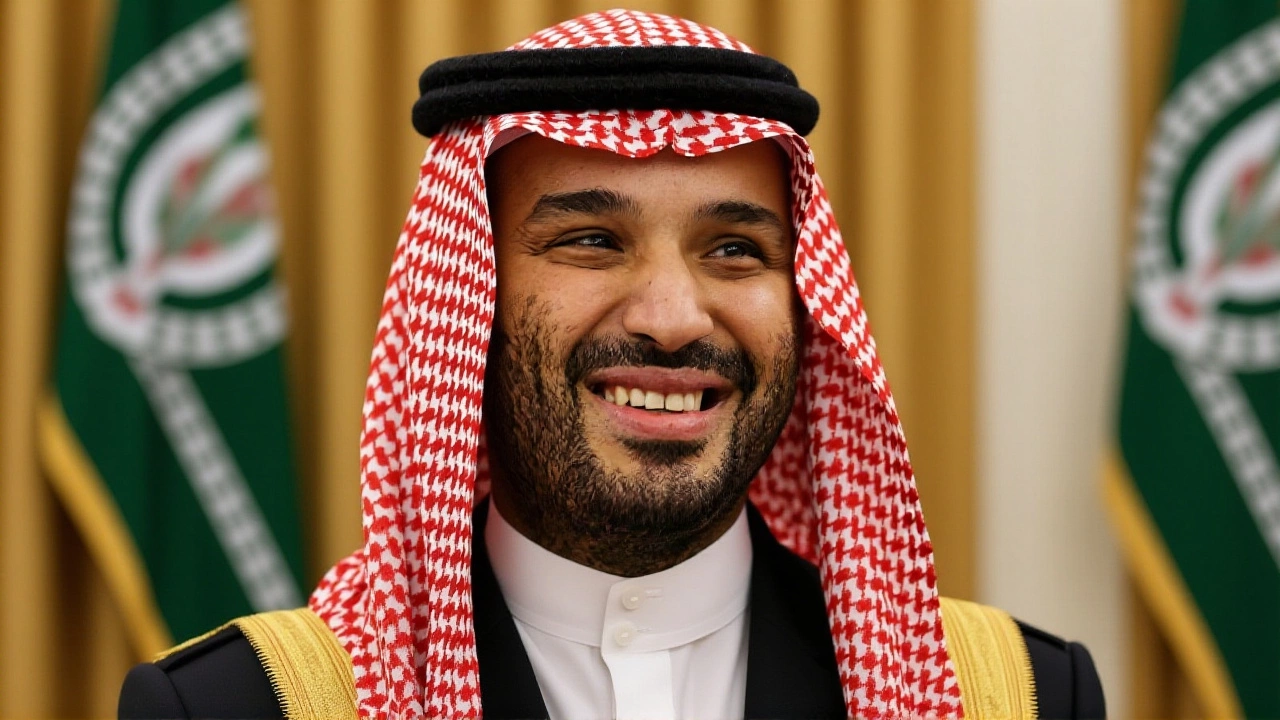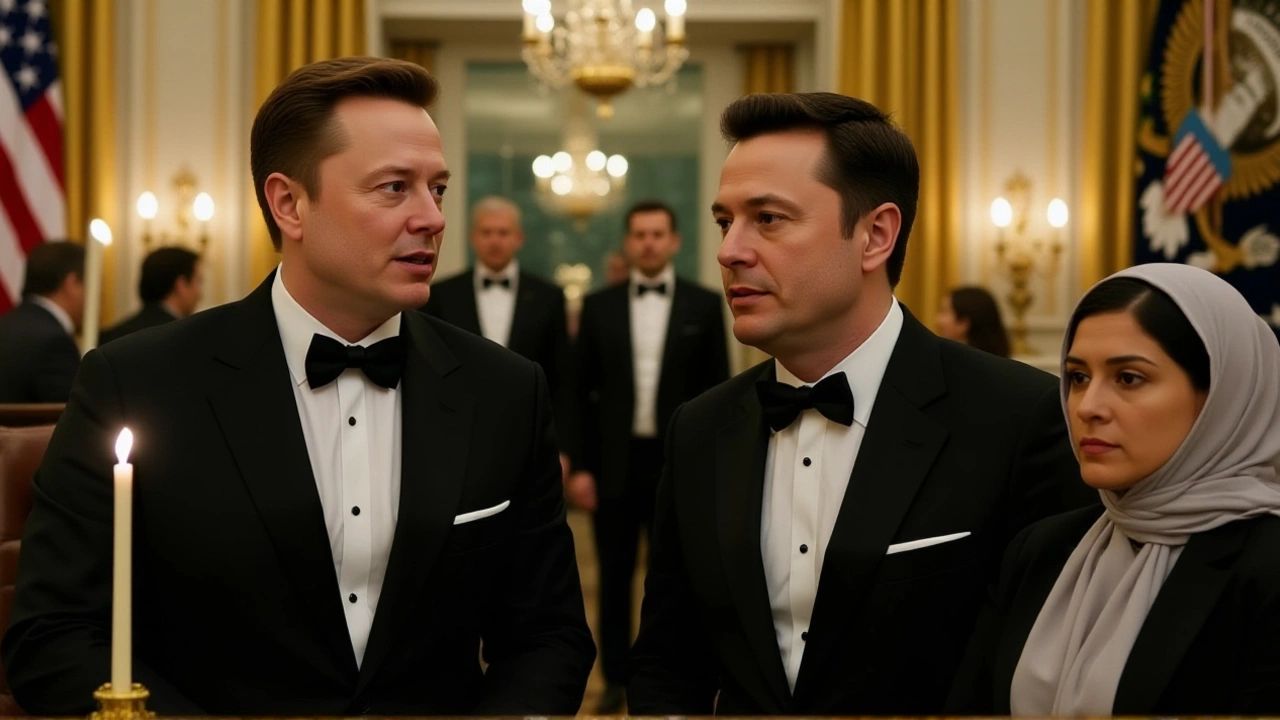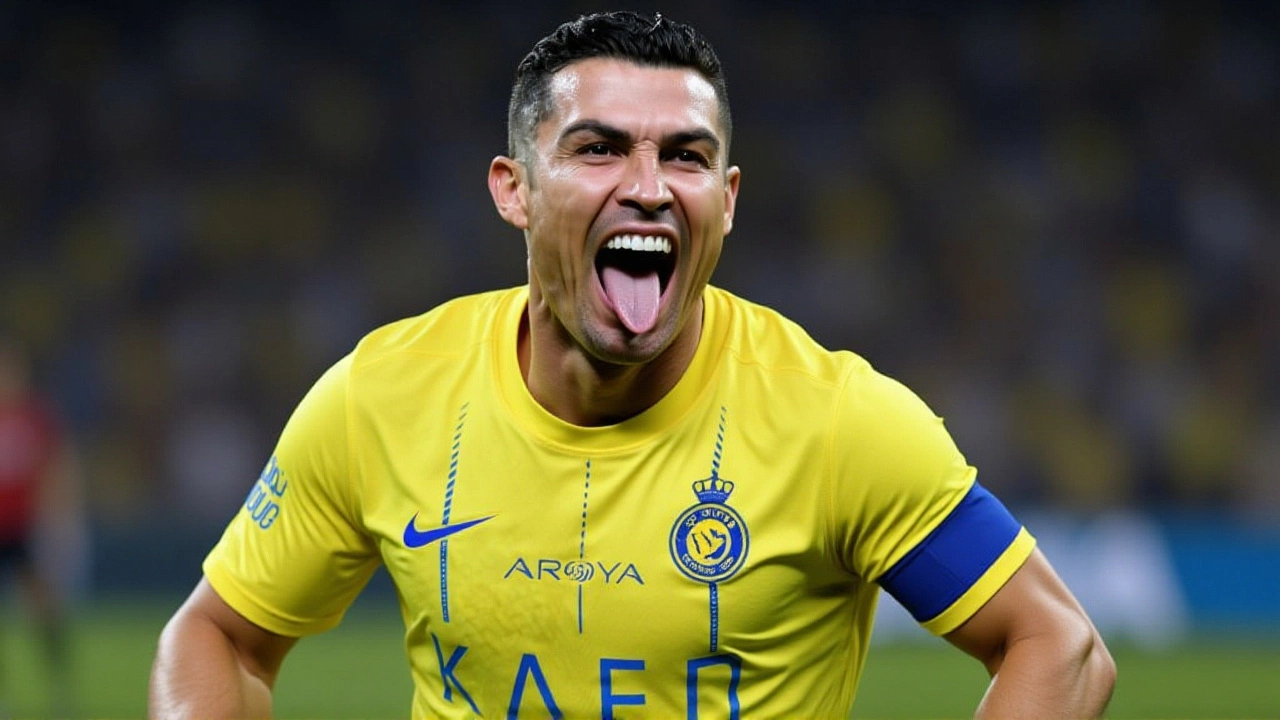On Tuesday, November 19, 2025, Cristiano Ronaldo, the 40-year-old Portuguese football legend, stepped into the East Room of the White House — not as an athlete, but as a global figure caught at the intersection of sports, diplomacy, and power. The occasion: a black-tie dinner hosted by President Donald Trump to honor Crown Prince Mohammed bin Salman of Saudi Arabia, marking the prince’s first formal visit to the White House since 2018. The event, held at 1600 Pennsylvania Avenue Northwest, coincided with the 80th anniversary of the first meeting between a U.S. president and a Saudi monarch — a momentous milestone in a relationship that now feels more transactional than ever.
When Football Meets Foreign Policy
Ronaldo, who plays for Al-Nassr FC in Riyadh, was seated near the front, his presence drawing more attention than most cabinet members. He didn’t just attend — he was acknowledged. President Trump, in his remarks, singled him out: "I introduced my son Barron to CR7 tonight. He’s got a little bit of that same fire." The moment was captured on video, later shared by the White House with the caption: "Two GOATS. CR7 x 45/47." It was a carefully curated image: the world’s most famous athlete, standing beside the world’s most polarizing president, honoring a monarch whose reputation remains deeply contested. The guest list read like a who’s who of American wealth and power: Elon Musk, Jeff Bezos, Secretary of State Marco Rubio, Vice President JD Vance, and First Lady Melania Trump. Even Speaker Mike Johnson was there. But Ronaldo stood out — not because of his title, but because of what he represents: global soft power, unbound by borders or politics. His $400 million contract with Al-Nassr, signed in 2023, made him the highest-paid athlete in history. Now, he’s become a diplomatic asset.A Personal Statement With Global Weight
Later that night, Ronaldo posted on Instagram: "Thank you Mr. President for your invitation and for the warm welcome you and the First Lady gave me and my future wife. Each of us has something meaningful to give, and I stand ready to do my part as we inspire new generations to build a future defined by courage, responsibility and lasting peace." It was polished, diplomatic — and telling. He didn’t mention Khashoggi. He didn’t mention human rights. He didn’t need to. His silence spoke louder than any protest ever could. His relationship with Trump isn’t new. In a 2020 interview with Piers Morgan, Ronaldo called Trump "one of the guys that can help to change the world." At the time, many dismissed it as the comment of a man focused only on his brand. But now? It looks like a strategic alignment. Ronaldo’s public image has shifted from pure sports icon to global influencer — a man who operates in the same circles as billionaires and heads of state. His attendance wasn’t random. It was calculated.
The 2026 World Cup: Ronaldo’s Last Stand
This dinner wasn’t just about diplomacy. It was also about timing. Ronaldo has publicly declared that the 2026 FIFA World CupMetLife Stadium — set to kick off June 11, 2026, across the U.S., Canada, and Mexico — will be his final World Cup. At 41, he’ll be the oldest player ever to appear in a World Cup final. He’s already the only man, alongside Lionel Messi, to play in six men’s tournaments since 2006. His contract with Al-Nassr expires June 30, 2026 — two weeks after the final. The U.S. government, under Trump’s administration, has quietly established a FIFA task force to coordinate security, logistics, and media operations for the tournament. Officials confirmed meetings took place throughout Q3 2025. Ronaldo’s presence at the White House wasn’t just symbolic — it was preparatory. His name carries weight in the Middle East, Europe, and now, potentially, in American political circles. His participation could be the bridge between Saudi investment and U.S. World Cup success.Why This Matters
This isn’t just about a footballer at a dinner. It’s about how modern power works. Ronaldo doesn’t need to be a politician to influence geopolitics. He doesn’t need to make policy to shape perception. He simply needs to show up. His presence signals to the world that the U.S.-Saudi relationship is back on track — and that sports stars are now key players in international diplomacy. It also raises uncomfortable questions. Can an athlete’s brand be separated from the regimes they associate with? Should it? Ronaldo’s Instagram post didn’t mention Jamal Khashoggi’s murder. It didn’t mention women’s rights in Saudi Arabia. It didn’t mention the war in Yemen. And yet, his endorsement — intentional or not — lends legitimacy to a government still under global scrutiny. The twist? He’s not alone. Billionaires like Musk and Bezos have long blurred the lines between business and politics. Ronaldo is following their playbook. He’s not a diplomat. But in 2025, he might as well be.
What Comes Next?
Ronaldo’s next move will be watched closely. Will he sign a new contract? Retire? Launch a media empire? The White House video of him and Trump has already gone viral — 12 million views in 48 hours. His future may no longer be on the pitch, but in boardrooms, studios, and state dinners. Meanwhile, the 2026 World Cup looms. And when Ronaldo takes the field in MetLife Stadium, millions will watch. Not just for the goals. But for what his presence means — for football, for politics, and for the quiet way power moves in the 21st century.Frequently Asked Questions
Why was Cristiano Ronaldo invited to the White House dinner?
Ronaldo was invited because of his global influence and his high-profile contract with Al-Nassr FC in Saudi Arabia. His presence lent cultural weight to the diplomatic event, signaling alignment between U.S. leadership and Saudi interests. Trump’s acknowledgment of Ronaldo — including introducing him to his son — underscored the symbolic value of his attendance beyond sports.
What’s the significance of the 80th anniversary mentioned at the dinner?
The 80th anniversary refers to the 1945 meeting between President Franklin D. Roosevelt and King Ibn Saud aboard the USS Quincy, which established the U.S.-Saudi strategic partnership centered on oil and regional security. By invoking it, Trump framed the 2025 dinner as a continuation of a historic alliance — one now increasingly tied to technology, investment, and global sports influence.
How does Ronaldo’s attendance relate to the 2026 World Cup?
Ronaldo’s presence at the White House aligns with U.S. efforts to strengthen ties with Saudi Arabia ahead of the 2026 World Cup, which will be co-hosted by the U.S., Canada, and Mexico. With Ronaldo’s contract expiring days before the tournament, his participation could be tied to broader commercial or diplomatic arrangements. The White House’s FIFA task force is likely using his star power to boost global interest and Saudi investment in the event.
Is Ronaldo endorsing the Saudi government by attending?
While Ronaldo didn’t make a political statement, his attendance, public gratitude, and the viral White House video function as de facto endorsement. His silence on human rights issues, combined with his alignment with Trump and the Saudi crown prince, suggests a strategic choice to prioritize global brand reach over political activism — a path increasingly taken by elite athletes in the digital age.
What happens to Ronaldo after his Al-Nassr contract ends in June 2026?
No official plans have been announced, but speculation centers on a media or business venture — possibly a global sports network, a Saudi-backed tech initiative, or a role in the 2026 World Cup’s broadcast team. With his brand value exceeding $1 billion, retirement from playing won’t mean retirement from the spotlight. His next chapter is likely to be in boardrooms, not locker rooms.
How does this event compare to past athlete-state visits?
Previous high-profile athlete-state visits — like Muhammad Ali’s 1970s diplomatic trips or Pelé’s 1977 meeting with Nixon — were framed as cultural goodwill gestures. Ronaldo’s 2025 visit is different: it’s tied to billion-dollar contracts, geopolitical realignment, and digital branding. He’s not just a guest — he’s a stakeholder in a new kind of soft power economy.

 Sports
Sports